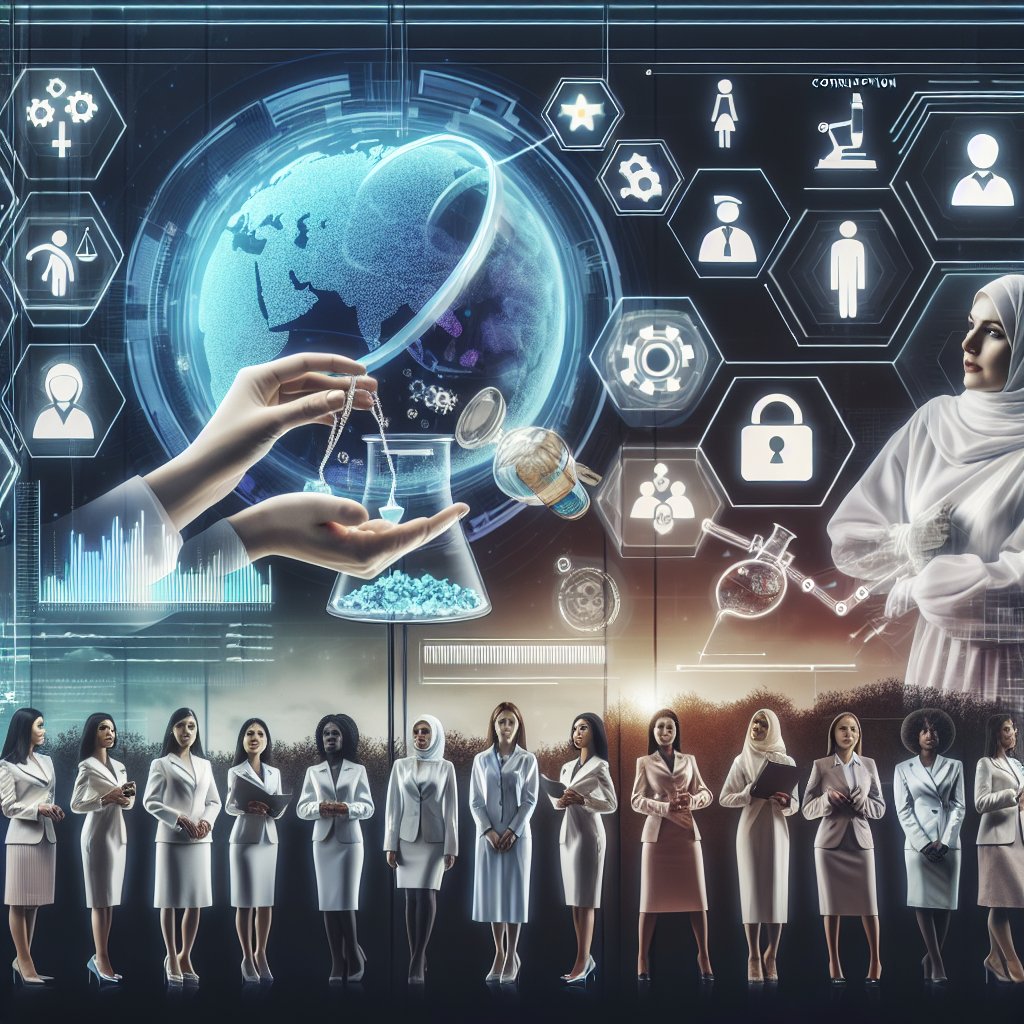Image created by AI
Inspiring Inclusion: The Crucial Role of Women in Anti-Corruption Efforts
In recognition of International Women's Day, under the theme "Inspire Inclusion," it's time to shine a spotlight on the pivotal role that women must play in combating corruption. As we celebrate the day aimed at encouraging the appreciation of women's involvement, it is critical to delve into their potential impact on fighting one of society's most insidious issues.
For too long, the narrative surrounding women's engagement with corruption has been restrictive, casting them exclusively as victims or beneficiaries of these illicit practices. This narrow perspective overlooks women's powerful capacity to act as agents of change, a role they are adept at playing in various social contexts. It remains a paradox that women, often the first to drive societal progress, have not been fully mobilized in the battle against corruption.
This oversight is not just paradoxical, but deeply detrimental. The disproportionate impact of corruption on women exacerbates gender inequality, affects their access to essential services, and undermines their ability to participate fully in economic, political, and social life. Yet, their involvement in anti-corruption efforts, or rather the lack thereof, reflects a missed opportunity to leverage their unique insights and leadership qualities in crafting innovative solutions.
Indeed, the roles that women could occupy in fighting corruption are multifaceted. They bring a nuanced perspective that can unveil the less visible forms of corruption such as "sexual corruption" or "sextortion." These prevalent yet often ignored forms of corruption require a different kind of attention – one that moves beyond financial forensics to addressing the silence, shame, and stigma that allow such abuses to persist.
It's a misconception to approach the subject of incorporating women into the anti-corruption equation as a simplistic matter of filling gender quotas or as a gesture of affirmative action. It should instead be a strategic inclusion that capitalizes on diverse viewpoints that can disrupt the homogenous, and oftentimes collusive, power structures that facilitate corrupt practices.
The debate shouldn't veer towards whether women are inherently less corrupt than men, a premise that is both reductive and unhelpful. Rather, the conversation must recognize that diversity, equity, and empowerment are the pillars upon which stronger, less corrupt societies are built. The meaningful inclusion of women means reaching out and understanding their experiences and allowing those realities to inform and shape anti-corruption policies and initiatives.
The addition of women's voices to the discourse isn't just about bringing equity to the table; it's about enhancing the efficacy of anti-corruption measures. Diverse teams have repeatedly been shown to challenge the status quo more effectively, bringing to light issues that a homogenous group might not even perceive as problems.
Corruption scandals involving female leaders occasionally spark criticism that seems to undermine the push for gender-inclusive anti-corruption efforts. However, these instances should not distract from the core message — that corruption is a collective human problem, not constrained to any one gender. Moreover, the presence of women can shatter the echo chambers that reinforce corrupt behaviors.
In conclusion, the fight against corruption requires a shared, inclusive strategy that transcends gender. As we strive for societal change and progress, the empowerment and inclusion of women in these efforts are not just a moral imperative but a practical one. Encouraging women to roll up their sleeves and contribute to the anti-corruption crusade is not just about righting societal wrongs—it's about building the formidable force needed to challenge and dismantle the pervasive systems of corruption that hinder global development and progress.










